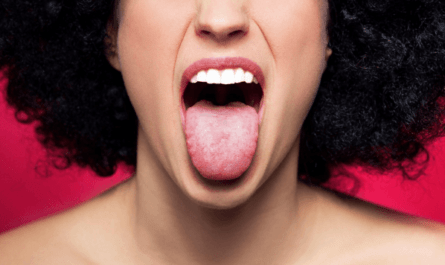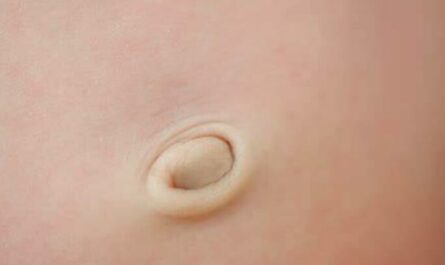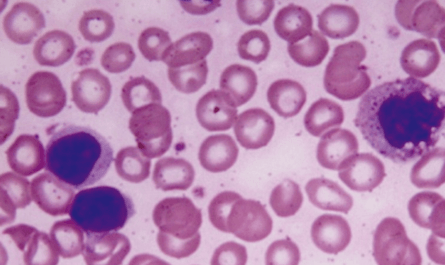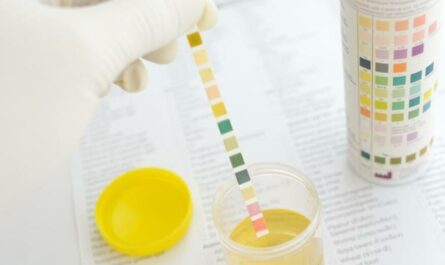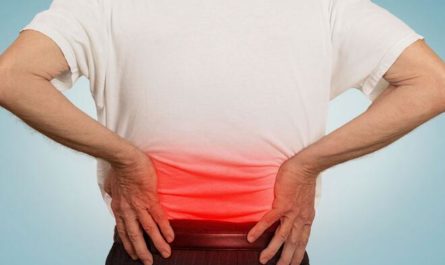A blood blister in the mouth is a fluid-filled bump that appears on the mucous membrane of the oral cavity. It can occur on any part of the mouth, including the inside of the lips, the tongue, and the cheek. A blood blister is typically caused by damage or trauma to the blood vessels beneath the skin’s surface. However, in some cause, it may indicate an underlying issue. This article will discuss what causes a blood blister in the mouth and the 12 best natural remedies to treat it at home.
Symptoms of Blood Blister in Mouth
A blood blister in the mouth can cause discomfort and pain. Some common symptoms associated with a blood blister in the mouth include:
- Appearance: Blood blisters usually appear as small, raised bumps inside the mouth. They can be filled with blood or clear fluid.
- Red or dark-colored blister: The blister may have a red or dark color due to the presence of blood.
- Pain or tenderness: Blood blisters can be painful, especially if they are located in sensitive areas of the mouth, such as the tongue, gums, or inner cheeks.
- Swelling: The area around the blood blister may become swollen and inflamed.
- Difficulty eating or speaking: Depending on the size and location of the blood blister, it may cause discomfort and make it challenging to eat or speak.
- Sensitivity: The surrounding tissues may be sensitive to touch or pressure.
- Bursting or bleeding: A blood blister may sometimes burst or bleed, resulting in a metallic taste in the mouth.
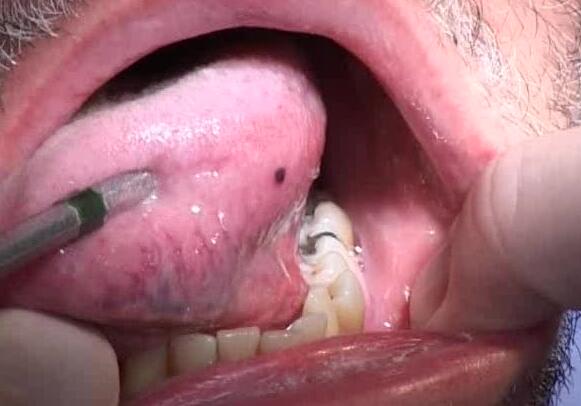
8 Common Causes of Blood Blister in Mouth
1. Accidental Biting or Chewing
One of the most common causes of blood blisters in the mouth is accidental biting or chewing of the oral tissues.
We’ve all experienced moments where we unintentionally bite the inside of our cheek or lip while eating or talking.
Such incidents can cause trauma to the soft tissues, leading to the formation of blood blisters. These blisters are usually small and localized, resolving within a few days with no treatment required.
2. Hot Food or Beverage Burns
Consuming excessively hot food or beverages can scald the delicate tissues in the mouth, resulting in blood blisters. The high temperatures can cause burns, leading to the formation of fluid-filled sacs. It is essential to allow hot foods or drinks to cool down before consuming them to prevent such injuries.
3. Poorly Fitting Dentures or Braces
Ill-fitting dentures or braces can cause friction and irritation in the mouth, leading to blood blisters. The constant rubbing of the oral tissues against the ill-fitting appliances can result in discomfort and the formation of blisters.
4. Oral Infections
Certain oral infections, such as oral herpes or viral stomatitis, can cause blood blisters in the mouth. The symptoms include painful sores, blisters, and other symptoms like fever or swollen lymph nodes.
5. Allergic Reactions
In some cases, blood blisters in the mouth can result from an allergic reaction to certain foods, medications, or dental products. When the immune system reacts to an allergen, it can manifest as blisters or ulcers in the oral cavity.
6. Trauma or Injury
Accidental trauma or injury to the mouth, such as a fall or a sports-related incident, can cause blood blisters. The forceful impact can damage the blood vessels beneath the skin, leading to the formation of blisters. Applying ice packs and seeking medical attention can aid in the healing process.
7. Nutritional Deficiencies
Inadequate intake of essential nutrients, particularly vitamin C, vitamin K, and iron, can weaken the oral tissues, making them more prone to injuries and blood blister formation.
Maintaining a well-balanced diet that includes a variety of fruits, vegetables, and lean proteins can help prevent nutritional deficiencies and support oral health.
8. Oral Cancer
While rare, blood blisters in the mouth can be a symptom of oral cancer. Suppose you notice persistent or unusual blood blisters and other concerning signs like unexplained weight loss, difficulty swallowing, or a persistent sore throat. In that case, it is crucial to consult a healthcare professional for a thorough evaluation.
12 Best Natural Remedies for Blood Blister in Mouth
1. Saltwater Rinse
A saltwater rinse is a simple yet effective remedy for blood blisters in the mouth. The saltwater helps cleanse the area and promotes faster healing. Salt has antimicrobial properties that can reduce the risk of infection and inflammation. The warm water in the rinse also provides soothing relief to the affected area.
- Dissolve half a teaspoon of salt in a glass of warm water.
- Gently swish the solution in your mouth, ensuring it reaches the affected area.
- Continue gargling for about thirty seconds.
- Spit out the rinse and avoid swallowing it.
- Repeat this remedy three to four times a day for optimal results.
2. Aloe Vera Gel
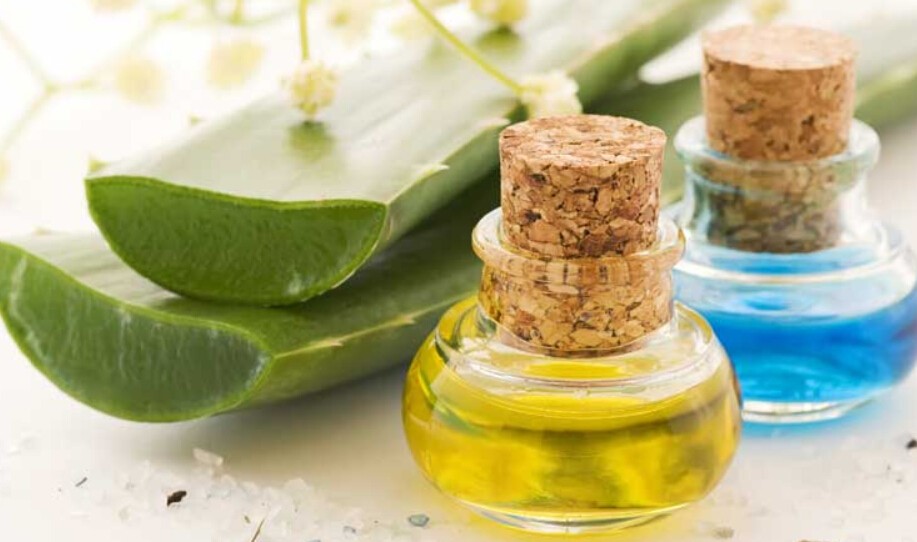
Aloe vera is renowned for its soothing properties and can help reduce inflammation and pain associated with blood blisters. The gel derived from aloe vera leaves contains enzymes, vitamins, and minerals that promote healing and provide relief.
- Extract fresh aloe vera gel from the plant.
- Apply a small amount of the gel directly to the blood blister in your mouth.
- Gently massage the gel into the blister.
- Leave it on for fifteen minutes to allow the healing properties to take effect.
- Rinse your mouth with lukewarm water to remove any residue.
- Repeat this process two to three times daily until the blister heals.
3. Tea Bags
Tea bags, particularly black tea bags, contain tannins that can help relieve pain and inflammation caused by blood blisters. Tannins are astringent compounds that constrict blood vessels, reducing swelling and promoting healing.
- Steep a black tea bag in hot water for a few minutes.
- Remove the tea bag from the water and let it cool down until warm.
- Gently squeeze out any excess liquid from the tea bag.
- Apply the warm tea bag directly to the blood blister in your mouth.
- Hold it against the blister for ten to fifteen minutes.
- Repeat this remedy twice a day for quick relief.
4. Honey
Honey possesses natural antibacterial and healing properties, making it an excellent remedy for blood blisters in the mouth. It helps create a protective barrier over the blister, preventing further infection and promoting faster healing.
- Dab a small amount of honey onto a clean cotton swab.
- Apply the honey directly to the blood blister in your mouth.
- Leave it on for twenty minutes to allow the honey to work magic.
- Rinse your mouth with lukewarm water to remove the honey.
- Repeat this process three times a day until the blister disappears.
5. Ice Pack
Applying an ice pack to the affected area can help numb the pain and reduce swelling. The cold temperature constricts blood vessels, reducing inflammation and providing temporary relief.
- Wrap a few ice cubes in a clean cloth.
- Gently hold the ice pack against the blood blister in your mouth.
- Apply gentle pressure to ensure contact with the blister.
- Hold the ice pack in place for ten to fifteen minutes.
- Take short breaks between applications to prevent frostbite.
- Repeat this remedy several times a day for relief from discomfort.
6. Coconut Oil
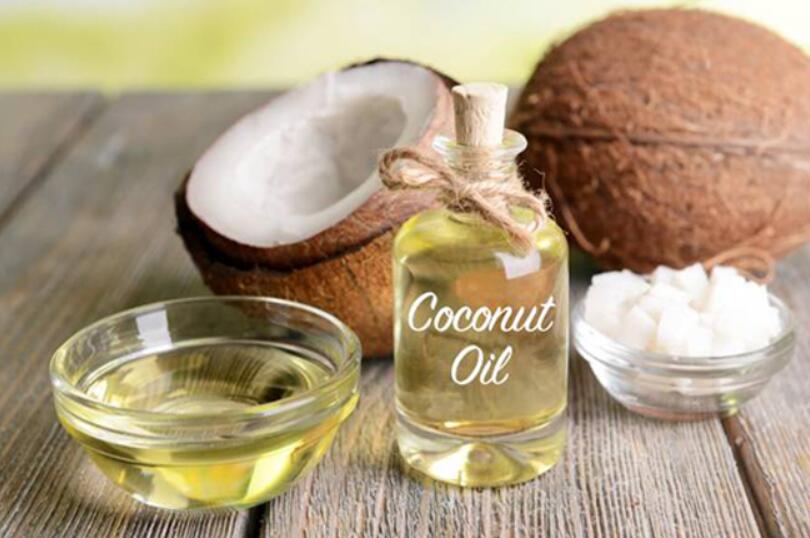
Coconut oil possesses antimicrobial properties and can help promote faster healing of blood blisters. It forms a protective layer over the blister, preventing further irritation and reducing the risk of infection.
- Take a small amount of coconut oil on your clean finger or a cotton swab.
- Apply the oil directly to the blood blister in your mouth.
- Gently massage the oil into the blister.
- Leave it on for at least twenty minutes to allow the healing properties to penetrate.
- Rinse your mouth with warm water to remove any residue.
- Repeat this process two to three times daily until the blister heals.
7. Clove Oil
Clove oil contains eugenol, a natural anesthetic and antiseptic compound that can relieve pain and prevent infection. It also has antimicrobial properties that can help reduce the risk of further complications.
- Dip a clean cotton swab into a small dish of clove oil.
- Apply the oil gently to the blood blister in your mouth.
- Massage the oil into the blister for a few seconds.
- Leave it on for fifteen minutes to allow the eugenol to take effect.
- Rinse your mouth with lukewarm water to remove any residual oil.
- Repeat this remedy twice a day for effective results.
8. Baking Soda Paste
Baking soda can help neutralize acids in the mouth and reduce pain and inflammation caused by blood blisters. It creates an alkaline environment that inhibits the growth of bacteria and promotes healing.
- Mix baking soda with a small amount of water to create a paste.
- Apply the paste directly to the blood blister in your mouth.
- Leave it on for fifteen minutes to allow the baking soda to work.
- Rinse your mouth thoroughly with water to remove the paste.
- Repeat this remedy once or twice a day until the blister heals.
9. Turmeric Powder
Turmeric possesses potent anti-inflammatory and antimicrobial properties, making it an excellent remedy for blood blisters in the mouth. It can help reduce pain and inflammation and promote faster healing.
- Mix one teaspoon of turmeric powder with enough water to create a paste.
- Apply the paste directly to the blood blister in your mouth.
- Gently massage the paste into the blister.
- Leave it on for twenty minutes to allow the healing properties of turmeric to take effect.
- Rinse your mouth with lukewarm water to remove any residue.
- Repeat this process twice a day for optimal results.
10. Witch Hazel
Witch hazel contains astringent properties that can help reduce pain and inflammation in the mouth. It can also help cleanse the blister, reducing the risk of infection and promoting healing.
- Soak a clean cotton ball in witch hazel.
- Apply the cotton ball directly to the blood blister in your mouth.
- Gently press it against the blister for ten minutes.
- Remove the cotton ball and discard it.
- Repeat this remedy two to three times daily until the blister disappears.
11. Chamomile Tea

Chamomile tea has soothing properties that can help alleviate pain and promote the healing of blood blisters. It contains antioxidants and anti-inflammatory compounds that can reduce inflammation and provide relief.
- Steep a chamomile tea bag in hot water for a few minutes.
- Allow the tea bag to cool down until warm.
- Gently squeeze out any excess liquid from the tea bag.
- Apply the warm tea bag directly to the blood blister in your mouth.
- Hold it against the blister for fifteen minutes.
- Rinse your mouth with lukewarm water to remove any residue.
- Repeat this process twice a day for relief.
12. Vitamin E Oil
Vitamin E oil is known for its healing properties and can aid in the recovery of blood blisters in the mouth. It promotes cell regeneration and provides a protective barrier, helping the blister heal faster.
- Pierce a vitamin E capsule and squeeze out the oil.
- Apply a small amount of the oil directly to the blood blister in your mouth.
- Gently massage the oil into the blister.
- Leave it on for fifteen minutes to allow the healing properties to work.
- Rinse your mouth with lukewarm water to remove any residue.
- Repeat this remedy two to three times daily until the blister heals.
How to Prevent blood blisters in the Mouth?
To help prevent blood blisters in the mouth, you can follow these preventive measures:
1. Practice good oral hygiene
Brush your teeth at least twice daily and floss daily to maintain good oral hygiene. This can help prevent oral infections that may contribute to developing blood blisters.
2. Avoid biting or chewing on hard objects
Avoid biting or chewing on hard objects such as pens, pencils, ice, or your fingernails. These habits can cause trauma to the delicate tissues in your mouth and increase the risk of developing blood blisters.
3. Avoid irritating or spicy foods
Certain foods, such as acidic or spicy ones, can irritate the tissues in your mouth and potentially lead to blood blisters. Avoid these foods if you notice they trigger blister formation.
4. Use caution when eating or drinking
Take care when consuming food or beverages that are too hot, as they can cause burns and subsequent blood blisters. Additionally, avoid accidentally biting your lips or cheeks while eating.
5. Manage stress and anxiety
Stress and anxiety can contribute to habits like teeth grinding or biting the inside of your mouth, leading to blood blisters. Engaging in stress-reducing activities and practicing relaxation techniques can help prevent these habits.
6. Stay hydrated
Proper hydration helps maintain the health of your oral tissues. Drink plenty of water throughout the day to keep your mouth moist and reduce the risk of irritation or dryness.
Frequently Asked Questions
1. Are blood blisters in the mouth contagious?
No, blood blisters in the mouth are not contagious. They are typically caused by accidental injury or irritation.
2. How long does a blood blister in the mouth take to heal?
The healing time for a blood blister in the mouth can vary depending on the severity of the blister and individual healing abilities. Generally, a blood blister may take a few days to weeks to heal completely.
3. Can I pop a blood blister in the mouth?
It is not recommended to pop a blood blister in the mouth as it may lead to further infection or complications. Instead, allow the blister to heal naturally.
4. When should I seek medical attention for a blood blister in the mouth?
If the blood blister persists for more than two weeks, becomes increasingly painful, or shows signs of infection (such as pus or excessive redness), it is advisable to seek medical attention.

